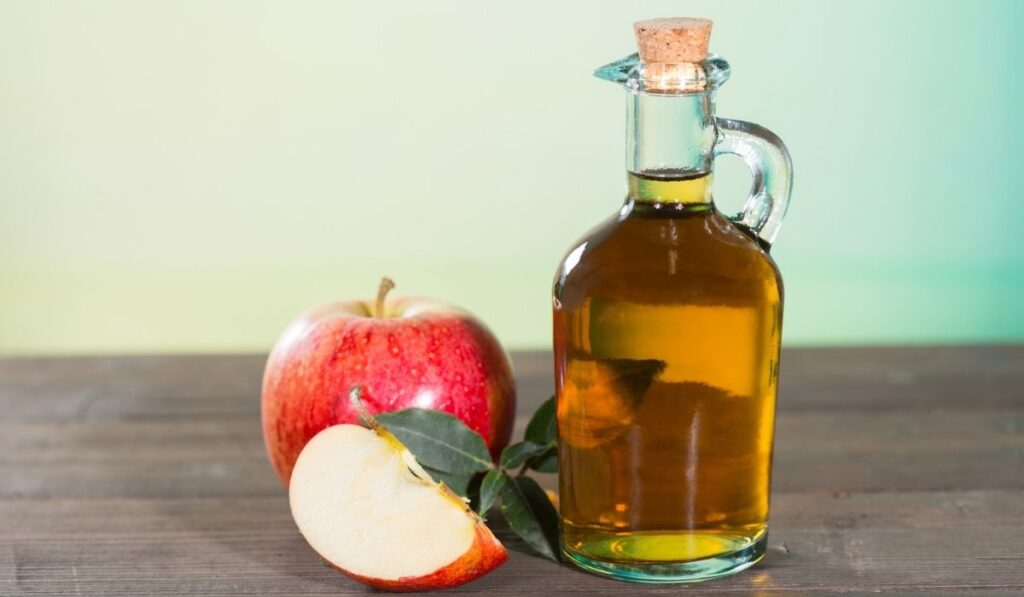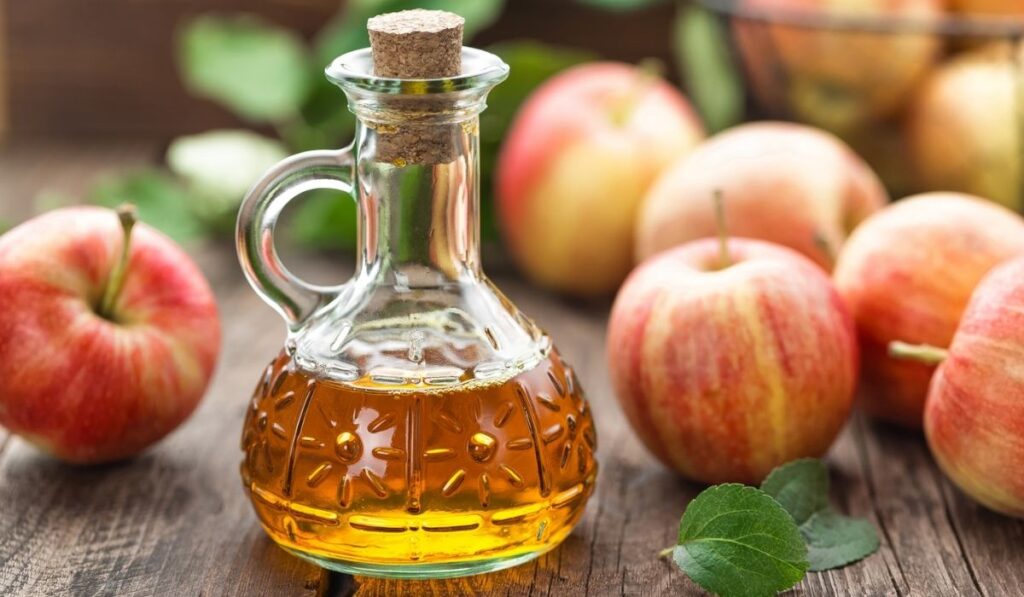Different varieties of vinegar have been used for ages as a natural home remedy. People have found simple uses for vinegar, from clearing a sore throat to a weight loss supplement. However, there might be some complications from frequent vinegar consumption.
Like other acidic beverages, vinegar can damage your teeth. Vinegar can weaken, soften, and erode your teeth’s enamel. Damaged enamel can result in sensitive teeth and dental decay. This risk is exceptionally high for white vinegar, which is the most acidic.
So, should you forego your morning health shot of apple cider vinegar? Or, is there a way to safely consume this super drink? Let’s take a look at everything you need to know about how vinegar affects your teeth so that you can consume it safely.
What is Vinegar?

To put it simply, vinegar is a diluted acetic acid. Typically, acetic acid is made by a double fermentation process. This process converts simple sugars to ethanol and then ethanol to acid using yeast and bacteria. Vinegar is commonly used for cooking as a flavoring agent or pickling method.
There are different varieties of vinegar, including those made from fruits and grain. However, in this article, we’ll be touching on the two main types of vinegar: white and apple cider.
We’re mostly referring to apple cider vinegar when talking about oral health. Apple cider vinegar is commonly associated with health benefits. Apple cider vinegar typically has an average pH reading between 2 and 3, making it reasonably acidic.
On the other hand, white vinegar has been shown to cause severe damage to the teeth enamel and should be avoided. This damage may be due to white vinegar being more acidic, less diluted, and stronger than apple cider vinegar.
All that being said, what are the effects of apple cider vinegar on your teeth? Does apple cider vinegar strengthen or weaken your teeth?
Effects of Apple Cider Vinegar for Your Teeth
Although many people claim apple cider vinegar as a superfood and frequently use it in home remedies, there are some precautions to be aware of.
Vinegar is highly acidic. Acidic beverages like soft drinks, juices, and coffee can damage your teeth’s enamel. Enamel is the protective coating found on the outside of your teeth. Enamel protects your teeth from damage, extreme temperatures, and more.
Like other acidic beverages, over time, vinegar can weaken, soften, and erode your teeth’s enamel. Weakened enamel can result in sensitive teeth and even dental decay. So, is there any way you can get the health benefits from apple cider vinegar safely?
How to Use Apple Cider Vinegar Safely

Although the health benefits are still being discovered, many people use apple cider vinegar daily. These individuals may be taking a shot in the morning for weight loss or boosting their immune systems. However, there are ways people can consume apple cider vinegar safely.
Minimize Time Exposure
Minimize the time your teeth are exposed to acidity by not holding in big gulps of vinegar before swallowing. Holding in acidic beverages exposes your teeth for more extended periods of time, resulting in more damage.
Don’t Brush Right After
Brushing right after an acidic drink seems like the perfect solution, right? Wrong! As stated earlier, acid weakens tooth enamel. Brushing right after your teeth have been softened only adds to the erosion. For the best results, wait up to 30 minutes before brushing your teeth and use a soft-bristled toothbrush.
Use a Straw or Sipper
Many dentists recommend using a straw or sipper when consuming acidic beverages. This is because straws and sippers prevent acidic drinks from hitting your teeth directly.
Rinse After
Try swishing a bit of water around your mouth the next time you take your morning health shot. Rinsing your mouth out with water after consuming vinegar helps reduce the bacteria and acidity in your mouth. Doing this is an easy way to protect your teeth while gaining the health benefits of apple cider vinegar.
Eat Calcium-Rich Foods
Vinegar weakens teeth enamel and reduces the calcium in the mouth. Calcium is known to improve tooth strength, so it’s important to eat calcium-rich foods. Some calcium-rich foods can include milk, cheese, leafy greens, and beans.
Drink With a Meal
Try drinking your next apple cider vinegar shot with a meal. Eating stimulates the flow of acid-neutralizing saliva. Acid-neutralizing saliva helps protect your teeth and enamel from damage. For the best results, use some of the calcium-rich foods listed above.
Use In Moderation
Just like anything else, vinegar should be used in moderation. Practice moderation and mindfulness when using apple cider vinegar in your home remedies. Although this superfood has many benefits, the last thing you want is damaged teeth. There is also a pill option that would ensure you’re consuming it in moderation – we recommend Bragg Apple Cider Vinegar Capsules (on Amazon).


